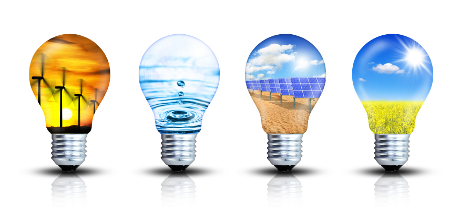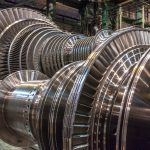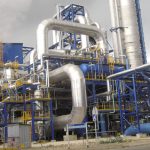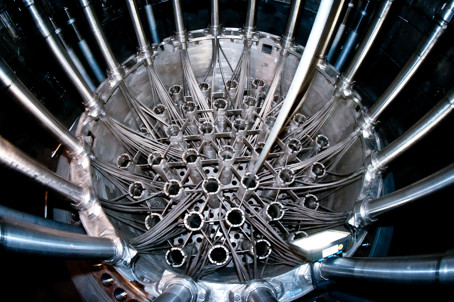Master Study Programmes
 The academic title “Engineer” (Master of Engineering) shortly “Ing.” (written before the person’s name), equivalent of MSc., is awarded upon passing the State Final Examination and defence of the Master’s thesis. Master study programme is a 2 years (4 semesters) study programme to be attended as full or part time form of study for graduate of bachelor study programme.
The academic title “Engineer” (Master of Engineering) shortly “Ing.” (written before the person’s name), equivalent of MSc., is awarded upon passing the State Final Examination and defence of the Master’s thesis. Master study programme is a 2 years (4 semesters) study programme to be attended as full or part time form of study for graduate of bachelor study programme.
Tutors: prof. Ing. Michal Kolovratník, CSc., Ing. Václav Dostál, Ph.D.
From the Energy topics there are 2 possible ways:
Power Engineering and Process Engineering
 Power Engineering provides deeper knowledge of heat transfer, mass transfer, fluid mechanics and energy transformation. This field of study trains experts both for the sphere of conventional and nuclear power engineering and renewable energy sources. The field is oriented on creation of projects, design and operation of power engineering machines and equipment for conventional and nuclear power plants, refrigeration technology and heat pumps, equipment for exploitation of renewable energy sources and pneumatic and hydraulic machines. Naturally, there is also an emphasis on increase of effectivity, economic and environmental aspects of energy transformations. The graduates find jobs in development, research and design departments, as heads of power engineering departments in power plants, in the state administration and in the sphere of power engineering consultancy and audits.
Power Engineering provides deeper knowledge of heat transfer, mass transfer, fluid mechanics and energy transformation. This field of study trains experts both for the sphere of conventional and nuclear power engineering and renewable energy sources. The field is oriented on creation of projects, design and operation of power engineering machines and equipment for conventional and nuclear power plants, refrigeration technology and heat pumps, equipment for exploitation of renewable energy sources and pneumatic and hydraulic machines. Naturally, there is also an emphasis on increase of effectivity, economic and environmental aspects of energy transformations. The graduates find jobs in development, research and design departments, as heads of power engineering departments in power plants, in the state administration and in the sphere of power engineering consultancy and audits.

Process Engineering provides an extension of theoretical fundamentals by professional disciplines focused on transfer of momentum, heat and mass and on physical chemistry. Among the characteristic and profile courses are hydromechanic, thermal and diffusion separation processes and reactors and also courses focused on deeper knowledge of flexibility and strength of materials and mechanics. An integral part of the curriculum is protection of the environment focused on sewage and gas treatment. Graduates are led to systematic designing and technical-economic assessment of process options, concepts of manufacturing lines and detail solutions of each machine and equipment system. They master designing and performing strength calculations of pressure equipment and creating concepts of production lines. A significant piece of knowledge the students gain is the use of computer technology in scientific and engineering calculations, collection of experimental data, control or process simulation, computer-aided designing with CAD methods, creating projects and utilization of computer networks.
Nuclear Power Engineering Equipment
 The program is run mainly by the Institute of Fluid Mechanics and Energetics, Department of Thermal and Nuclear Power Plants. Some compulsory elective courses are provided by tutors of other departments of the Faculty of Mechanical Engineering. Faculty of Nuclear Sciences and Physical Engineering also provides some of the subjects. Major part of the subjects is taught by experts from the field. Graduates of this programme are professionals for the nuclear power industry, they gain knowledge of design, implementation and management of existing nuclear power plants and an overview in the area of new advanced nuclear reactors and their research and development so that they are able to participate in such research and development. Graduates are thus experts especially in the design and operation of nuclear facilities as a whole, with an emphasis on mechanical issues (nuclear safety systems, cooling technology, materials and their lifetime, supporting technology of nuclear facilities, the issue of nuclear fuel cycle). It is also possible to study subjects focused on conventional power and thereby gain a full understanding of energy issues. Graduates get a general, broad cross-sectional overview rather than expert knowledge focused just on one field.
The program is run mainly by the Institute of Fluid Mechanics and Energetics, Department of Thermal and Nuclear Power Plants. Some compulsory elective courses are provided by tutors of other departments of the Faculty of Mechanical Engineering. Faculty of Nuclear Sciences and Physical Engineering also provides some of the subjects. Major part of the subjects is taught by experts from the field. Graduates of this programme are professionals for the nuclear power industry, they gain knowledge of design, implementation and management of existing nuclear power plants and an overview in the area of new advanced nuclear reactors and their research and development so that they are able to participate in such research and development. Graduates are thus experts especially in the design and operation of nuclear facilities as a whole, with an emphasis on mechanical issues (nuclear safety systems, cooling technology, materials and their lifetime, supporting technology of nuclear facilities, the issue of nuclear fuel cycle). It is also possible to study subjects focused on conventional power and thereby gain a full understanding of energy issues. Graduates get a general, broad cross-sectional overview rather than expert knowledge focused just on one field.


